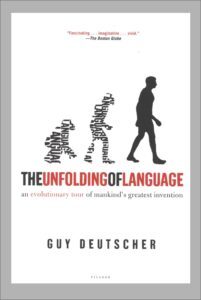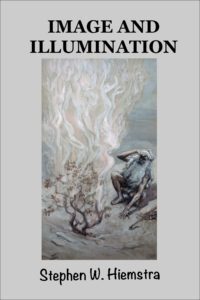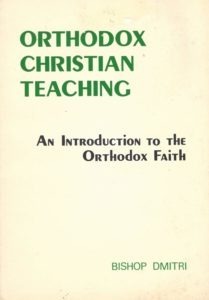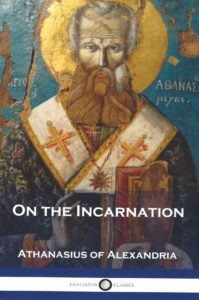Stephen W. Hiemstra's Blog, page 91
March 22, 2022
Deutscher: Language Evolves

Guy Deutscher. 2005. The Unfolding of Language: An Evolutionary Tour of Mankind’s Greatest Invention. New York: Henry Holt and Company.
Review by Stephen W. Hiemstra
Few things fascinate more than linguistics. Why do we speak different languages and where do they come from? For polygots, the history and evolution of languages seems like peaking behind the curtain of the Wizard of Oz.
IntroductionGuy Deutscher’s book, The Unfolding of Language: An Evolutionary Tour of Mankind’s Greatest Invention, starts with this objective
“This book will set out to unveil some of language’s secrets, and thereby attempt to dismantle the paradox of this great uninvented invention.” (8)
Deutscher begins with an audacious claim that: “The advent of language is what made us human.” (1) Even the Einstein of chimps, Kanzi, who can recognize up to 500 words and simple sentences, cannot string together these symbols and form real sentences (17). The human brain appears pre-wired for language, even if the potential was slow to be realized (19).
Language is a uniquely human enterprise whose evolution is glacially slow, yet incessant. Strikingly, we see “pretty much the full repertoire of complex features found in any language” (9) from the beginning of recorded history some five thousand years into the past, suggesting that our ancestors were no less sophisticated than we are, contrary to the generational arrogance that is openly exhibited these days. The “me Tarzan, you Jane” (9) phase of linguistic development is unobservable in the historical record and nonexistent among remote, isolated people groups today. In fact, the most complex word structures tend to be found among small tribal groups, while simplification is more a characteristic of languages employed in large, trading cultures (272)
Deutscher sees three primary motives for language to evolve: economy, expressiveness, and analogy (62). Complexity is constantly broken down (economy), yet we strive to express our views (expressiveness) in memorable ways (analogy). Dead metaphors play a surprisingly important role in creating new grammatical elements, much like islands and rich farmland often begin life as swamps and alluvial deposits, with a flow from the concrete to the abstract (118, 142-143). Authors work hard to avoid clichés, instead expressing metaphors potentially characterized as short, concrete memes or, better yet, associating an entirely new word with their work.
Background and OrganizationGuy Deutscher (1969-) is an Israeli linguist. His undergraduate degree and doctorate are from University of Cambridge, UK. He is a writer and author of several books on linguistics.
Deutscher writes in seven chapters, preceded by an introduction and followed by an epilogue:
A Castle in the AirPerpetual MotionThe Forces of DestructionA Reef of Dead MetaphorsThe Forces of CreationCraving for OrderThe Unfolding of Language (iii)These chapters are followed by five appendices, notes, bibliography, glossary, acknowledgments, credits, and an index.
Mystery of ChangeDeutscher repeatedly and ironically refers to the hiddenness of language change and to the ubiquitous complaints about the deprecation of language. For example, why did Latin loose most of its elegant case structure once it evolved into romance languages, like French and Spanish? How can languages evolve without anyone really noticing? At this point, he begins telling stories and taking special note of small irregularities.
Suppose you go out for a movie and hear two women in the theatre describing the film as “wicked”? What impression would you get if the women were teenagers versus elderly? The context of the comments makes all the difference in how you might interpret what was said. In the same manner, words can take on meanings entirely unrelated to their origin, especially in the case of metaphor (69).
AssessmentGuy Deutscher’s The Unfolding of Language: An Evolutionary Tour of Mankind’s Greatest Invention is an interesting read. While I am not a linguist, I received this book as a Christmas present and read it over the holidays. Those that read my blog will recognize that I post in English, Spanish, and German, which makes me a polygot. I suspect that this book is required reading for introductory courses in linguistics.
Footnoteshttps://en.wikipedia.org/wiki/Guy_Deu...
Deutscher: Language EvolvesAlso see:Books, Films, and MinistryOther ways to engage online:Author site: http://www.StephenWHiemstra.netPublisher site: http://www.T2Pneuma.com Newsletter at: https://bit.ly/Seize_2022, Signup
The post Deutscher: Language Evolves appeared first on T2Pneuma.net.
March 21, 2022
Wider Law: Monday Monologues (podcast), March 21, 2022

By Stephen W. Hiemstra
This morning I will share a prayer and reflect on the Wider Law. After listening, please click here to take a brief listener survey (10 questions).
To listen, click on this link.
Hear the words; Walk the steps; Experience the joy!
Wider Law: Monday Monologues (podcast), March 21, 2022
Also see:
Monday Monologue On March 26, 2018
Other ways to engage online:
Author site: http://www.StephenWHiemstra.net,
Publisher site: http://www.T2Pneuma.com.
Newsletter at: https://bit.ly/Seize_2022, Signup
The post Wider Law: Monday Monologues (podcast), March 21, 2022 appeared first on T2Pneuma.net.
March 20, 2022
Wider Law Prayer

By Stephen W. Hiemstra
Everlasting Father, Prince of Peace, Spirit of Truth,
All praise and honor, power and glory, truth and justice be to you, Lord of our past, present, and future, which showers us with the light of day and a sky-full of stars at night, teaches us the wisdom of the universe, and grants us law that we might live full lives and love one another.
Forgive us when we hide your glory to ourselves, act foolishly, and treat others as if they were only strangers.
Thank you for the many blessings of this life that come from you and you alone.
In the power of your Holy Spirit, grant us strength to live, grace to share with one another, and peace that only you can provide.
In Jesus’ precious name, Amen.
Wider Law Prayer
Also see:
The Who Question
Preface to a Life in Tension
Other ways to engage online:
Author site: http://www.StephenWHiemstra.net
Publisher site: http://www.T2Pneuma.com
Newsletter at: https://bit.ly/Seize_2022, Signup
The post Wider Law Prayer appeared first on T2Pneuma.net.
March 18, 2022
Christ Extends the Law

For this is the covenant that
I will make with the house of Israel after those days,
declares the LORD: I will put my law within them, and
I will write it on their hearts. And I will be their God, and
they shall be my people. (Jer 31:33)
By Stephen W. Hiemstra
If many people are spiritually deaf and blind, then according to Athanasius (1944, 27-28) the only remaining path to know God is through the law. This idea may sound odd to Christian ears, but for Jews and Muslims law plays a crucial role in their religion and their experience of God himself. Some theologians believe, for example, that the Psalms play a key role in Jewish and Christian spirituality and essentially provide a commentary on Mosaic law (Wenham 2012, 7).
This pathway sounds especially promising because Jesus teaches continuity with the law: “Do not think that I have come to abolish the Law or the Prophets; I have not come to abolish them but to fulfill them.” (Matt 5:17)
The concept of boundaries sounds a lot like law, which raises the controversy about the relationship between law and Gospel. In the Gospels, the Pharisees are pictured presenting a narrow interpretation of law to make it doable while Jesus normally widens the interpretation making compliance impossible without divine intervention. Jesus generally speaks about principles while the Pharisees focus on rules.
Parenthetically, the Pharisaic interpretation favors the wealthy because they are more likely to be able to remain technically in compliance with the law while Jesus’ interpretation leaves rich and poor alike equally in need of divine intervention relative to compliance.
When the commandments are expressed as principles, sin is also a violation of the principle of love in relationships with God and with neighbor (Matt 22:36-40). Matthew outlines five cases (Matt 5:21, 5:27, 5:33, 5:38, and 5:43) in which Jesus enlarged Mosaic Law by expanding technical compliance to consider underlying attitudes: Murder, adultery, the taking of oaths, resisting evil, and love of neighbor. Jesus introduces each with the expression: “You have heard it said.”
Anger Leads to Murder
Consider the case of murder.
“You have heard that it was said to those of old, you shall not murder; and whoever murders will be liable to judgment. But I say to you that everyone who is angry with his brother will be liable to judgment.” (Matt 5:21-22).
Jesus sees the act of murder starting with an attitude of anger, which is sinful when it violates the attitude of love and, left unchecked, can lead to murder.
Jesus is not relinquishing the law or diminishing it in any way, as he explained in Matthew 5:17 cited above. In this context, fulfilling the law implies a more stringent condition than the law, not a more lenient one, where three states of nature are possible: Noncompliance with law (transgression), technical compliance (Pharisee position), and fulfilling the law (Gospel). Contrasting law and Gospel only compares two of the three states.
By widening the law, Jesus makes it obvious that we must make room in our lives for God and live within his healthy boundaries. The Ten Commandments cannot therefore be abandoned; mere compliance is an indication that we have not centered our lives on Christ.
Ethical Illumination Insufficient
One might ask whether fulfilling Jeremiah’s prophecy about writing God’s law on our hearts were sufficient to prepare us for heaven. Jesus’ teaching that widened the law certainly fulfilled this expectation and could surely be described as ethical illumination.
Yet, even the Apostle Paul found this teaching as insufficient when he writes: “For I do not do the good I want, but the evil I do not want is what I keep on doing.” (Rom 7:19) Even for those predisposed to believe that ethical perfection is possible contrary to biblical teaching, we can all observe that knowing what is good is insufficient motivation to actually do it.
References
Athanasius of Alexandria. 1944. On the Incarnation (Orig pub 319 AD). Translated by Sister Penelope Lawson. England.
Wenham, Gordon J. 2012. Psalms as Torah: Reading Biblical Song Ethically. Grand Rapids: Baker Academic.
Also see:
The Who Question
Preface to a Life in Tension
Other ways to engage online:
Author site: http://www.StephenWHiemstra.net
Publisher site: http://www.T2Pneuma.com
Newsletter: https://bit.ly/Mem_2022, Signup
The post Christ Extends the Law appeared first on T2Pneuma.net.
March 15, 2022
Dmitri Outlines Orthodox Faith

Bishop Dmitri. 1980. Orthodox Christian Teaching: An Introduction to the Orthodox Faith. Syosset, New York: Orthodox Church in America.
Review by Stephen W. Hiemstra
Since the Great Schism of 1054, which divided the Catholic Church and the Eastern Orthodox Church, the Orthodox Church has been viewed as mysterious in the West. Efforts by Pope Paul VI to patch up differences between East and West since 1965 have only been partially successful. For Protestants that generally keep an arms-length distance with Catholics, the smells and bells of the Orthodox Church are even more of a curiosity. Personally, in addressing a Mosque in Chantilly a few years back, I took the view that anyone who takes God seriously in this secular age must be considered a brother or sister in faith.
IntroductionIn the preface to his book, Orthodox Christian Teaching: An Introduction to the Orthodox Faith Bishop Dmitri writes: “This book is intended to be used by adults as an introduction to the teachings of the Orthodox Church.” (4). The Orthodox Church claims to be founded on the faith of the Apostle, as presented in scripture and the traditions of the church (4-7), and Apostolic succession, the laying on of hands upon hands going back to the Apostolic era.
Background and OrganizationArchbishop Dmitri (1923-2011) was born Robert Roscoe Royster and raised as a Southern Baptist. He converted to orthodoxy in 1939. He joined the Army in 1943 and served on the staff of General MacArthur as a Japanese translator. He later finished his studies at North Texas State University and earned a Masters in Spanish. He wrote numerous publications and books about Orthodoxy.
Dmitri writes in fifteen chapters:
Sources of Orthodox Christian TeachingThe Doctrine of God: God’s Revelation to ManThe Doctrine of GodThe Incarnation and the Mission of the ChristThe ChurchThe Holy Mysteries of BaptismThe Holy Mysteries: Chrismation and CommunionThe Sacraments of Healing: Confession and UnctionOrdination and MatrimonyThe Divine Liturgy: The Liturgy and the CatechumensThe Divine Liturgy: The EucharistThe Veneration of the Virgin Mary in the Orthodox ChurchOn Prayer and FastingOrthodoxy Throughout the WorldThe Last Things: Eschatology (3).These chapters are introduced with a preface and followed by a word list and suggested readings.
Sources of AuthorityOne of the central tenants of the Protestant reformation was captured in the phrase, solo scriptura, which means by scripture alone. Scripture, it was confessed, was the sole, written authority for the church. Other things, such as tradition, culture, and psychology, were not believed to inspire our faith (Sproul 1997, 41-44). Most denominations remain orthodox in their formal theology, but they generally soft-pedal theology and their orthopraxis no longer treats scripture as their sole authority.
Dmitri writes:
“When one studies the Orthodox Church, he immediately sees that there are many things both in its teaching and practices that are not found in the New Testament scriptures.” (6)
While giving priority to the Bible in its teaching and practice, the Orthodox Church also venerates oral and written tradition, the writings of seven councils of the church, and liturgical texts. However, these must be consistent with scripture (6-7).
Four Marks of the ChurchDmitri articulates a clean sense of the Orthodox Church’s ecclesiology, theology of the church. He writes: “The Church is identifiable by four marks that believers confess in the Nicene Creed: One, Holy, Catholic, and Apostolic.” (24)
Oneness implies unity. Dmitri cites Ephesians 4:4-6: One Lord, one faith, one baptism, and one God and Father of us all.
Holy emphasizes the need for continual sanctification.
Catholic implies full and complete.
Apostolic implies preservation of: “The Apostolic Church without break or change in doctrine and in apostolic succession.” (24)
AssessmentBishop Dmitri’s Orthodox Christian Teaching: An Introduction to the Orthodox Faith is a succinct and readable statement of the beliefs and practice of the Orthodox Church. I would commend it to anyone curious about the beliefs of this ancient church.
ReferencesSproul, R.C. 1997. What is Reformed Theology: Understanding the Basics. Grand Rapids: Baker Books.
Footnoteshttps://en.wikipedia.org/wiki/Dmitri_....
] https://en.wikipedia.org/wiki/East%E2...
Dmitri Outlines Orthodox FaithAlso see:Books, Films, and MinistryOther ways to engage online:Author site: http://www.StephenWHiemstra.netPublisher site: http://www.T2Pneuma.com Newsletter: https://bit.ly/Mem_2022, Signup
The post Dmitri Outlines Orthodox Faith appeared first on T2Pneuma.net.
March 14, 2022
Revelation: Monday Monologues (podcast), March 14, 2022

By Stephen W. Hiemstra
This morning I will share a prayer and reflect on the Revelation. After listening, please click here to take a brief listener survey (10 questions).
To listen, click on this link.
Hear the words; Walk the steps; Experience the joy!
Revelation: Monday Monologues (podcast), March 14, 2022
Also see:
Monday Monologue On March 26, 2018
Other ways to engage online:
Author site: http://www.StephenWHiemstra.net,
Publisher site: http://www.T2Pneuma.com.
Newsletter: https://bit.ly/Mem_2022, Signup
The post Revelation: Monday Monologues (podcast), March 14, 2022 appeared first on T2Pneuma.net.
March 13, 2022
Revelation Prayer

By Stephen W. Hiemstra
Ever Present Father,
All praise and glory, power and dominion, knowledge and passion belong to you, father to the fatherless, lover of the unlovely, judge of the wicked, and savior of the faithful for you loved us before we loved you.
Forgive our unworthiness, our weakness, our sinfulness, and our lack of concern for others while we knew your handiwork, but turned the other way, and ignored your teaching in the law and Gospel both. Have mercy on us.
We give thanks for the many blessings of this life and especially for the example of your son, Jesus Christ, who showed us how to live and demonstrated to us how to die for the sake of others.
Renew your Holy Spirit in our hearts and place your law in our minds, that we might turn to you in our hour of weakness and testing.
In Jesus’ precious name, Amen.
Revelation Prayer
Also see:
The Who Question
Preface to a Life in Tension
Other ways to engage online:
Author site: http://www.StephenWHiemstra.net
Publisher site: http://www.T2Pneuma.com
Newsletter: https://bit.ly/Mem_2022, Signup
The post Revelation Prayer appeared first on T2Pneuma.net.
March 11, 2022
God Image in Creation and Spoken Word

The heavens declare the glory of God, and the sky above proclaims his handiwork.
Day to day pours out speech, and night to night reveals knowledge …
The law of the LORD is perfect, reviving the soul;
the testimony of the LORD is sure, making wise the simple.
(Ps 19:1-7)
By Stephen W. Hiemstra
According to Athanasius (1944, 27-28), we can know God through three methods: Pondering the immensity of heaven and the harmony of creation, conversing with holy men, and following the law. All three methods of knowing God are woven into the fabric of Psalm 19, cited above. Again, we see the integration of created being, goodness (perfection), and knowledge (law) mirroring the unity of heart and mind in Hebrew anthropology.
God’s General Revelation
Scripture, as in Psalm 19 cited above, normally assumes awareness of God through creation. Likewise in Psalm 8 we read: “When I look at your heavens, the work of your fingers, the moon and the stars, which you have set in place, what is man that you are mindful of him, and the son of man that you care for him?” (Ps 8:3-4) The Apostle Paul makes this point emphatically:
“For what can be known about God is plain to them, because God has shown it to them. For his invisible attributes, namely, his eternal power and divine nature, have been clearly perceived, ever since the creation of the world, in the things that have been made. So they are without excuse.” (Rom 1:19-20)
The idea that order in the universe points to a divine creator, like finding a watch on the beach points to the existence of a watchmaker, is a classic proof for God’s existence (Keller 2016, 219). In theology this awareness of God through creation is described as his general revelation.
A personalized variation on this concept of general revelation is to argue, as Thomas (1996, 23) does, that creation awareness is one of nine sacred pathways to God. Naturalists are those that experience God most clearly through communing with his creation. The other nine pathways are through the senses, tradition, asceticism, activism, caregiving, via mysteries, through contemplation, and with the mind (Thomas 1996, 7). What Thomas describes as pathways depend on the spiritual gifts that God gave us in our creation.
God’s Voice
Adam and Eve recognized God’s voice when he called to them in the Garden of Eden (Gen 3:8-10). Cain, Noah, Abraham, Moses, and Job all spoke directly with God. Athanasius (1944, 26) argues that God created us in his image precisely so that we might recognize him. Even Satan recognizes God’s voice (Gen 3:14-15).
The Blackabys (2002, 31-32) inventory the ways that God spoke to his people in the Old and New Testaments. In just the Old Testament:
“Creation, angels, prophets, dreams, visions, casting lots, Urim and Thummim, gentle voice, fire, burning bush, preaching, judgments, symbolic actions, signs, miracles, writing on the wall, a talking donkey, trumpets, thunder and lightning, smoke and storms, fleece, the sound of marching on treetops, face-to-face, personal guidance, and various unspecified ways.”
The voice of God can still be heard, but not everyone listens.
The role of a prophet in the Old Testament was to point people to the Mosaic covenant and to listen for God’s voice, which had become veiled to most people: “Hear my words: If there is a prophet among you, I the LORD make myself known to him in a vision; I speak with him in a dream.” (Num 12:6) Yet, if God’s voice were faint and the prophets amplified it, lack of acceptance, not deafness, was the underlying issue because the prophets were typically persecuted.
Jesus railed against this persecution: “O Jerusalem, Jerusalem, the city that kills the prophets and stones those who are sent to it!” (Matt 23:37) More typically today, observant pastors are shunned in favor of those that preach what people want to hear, which the Apostle Paul derided with these words: “For the time is coming when people will not endure sound teaching, but having itching ears they will accumulate for themselves teachers to suit their own passions.” (2 Tim 4:3) Itchy ears make hard for many people to know God through holy men and women, as Athanasius opined.
References
Athanasius of Alexandria. 1944. On the Incarnation (Orig pub 319 AD). Translated by Sister Penelope Lawson. England.
Blackaby, Henry and Richard. 2002. Hearing God’s Voice. Nashville: Broadman and Holman Publishers.
Keller, Timothy. 2016. Making Sense of God: An Invitation to the Skeptical. New York: Viking Press.
Thomas, Gary L. 1996. Sacred Pathways: Discover Your Soul’s Path to God. Grand Rapids: Zondervan.
God Image in Creation and Spoken Word
Also see:
The Who Question
Preface to a Life in Tension
Other ways to engage online:
Author site: http://www.StephenWHiemstra.net
Publisher site: http://www.T2Pneuma.com
Newsletter: https://bit.ly/Mem_2022, Signup
The post God Image in Creation and Spoken Word appeared first on T2Pneuma.net.
March 8, 2022
Athanasius Presents Christ’s Work

Athanasius of Alexandria. 1944. On the Incarnation (Orig pub 319 AD). Translated by Sister Penelope Lawson. Pantianos Classics: England.
Reviewed by Stephen W. Hiemstra
The fourth century poses an important period in church history. When Christianity became the official state religion of Rome, churches became flooded with pagans who knew little about the faith and brought their prior beliefs with them. Church Councils responded by adopting statements of faith, like the Apostle’s Creed. Athanasius played a key role in these deliberations, collecting together the books that we now consider the New Testament.
IntroductionIn his book, On the Incarnation, Athanasius of Alexandria argues that God himself had to come in bodily form:
“Because it was He alone, the image of the Father Who could recreate man made after his own Image.” (29)
He likens the task of recreation of a fallen humanity to the problem posed by an artist trying to reproduce a portrait that has been stained. The subject of the portrait must return and pose a second time in order that the original image be restored, an important point in a world before cameras and cellphones (30).
Background and OrganizationAthanasius of Alexandria (circa AD 296-373) wrote in Greek sometime before AD 319 as Pope of the Coptic Church in Egypt. He most famously opposed Arianism, which taught that Jesus was like God the Father, but not of the same substance. In addition to On the Incarnation, he wrote: The Life of St. Antony and Four Orations Against the Arians. As such, he was an important influence on the Council of Nicaea, which adopted the Nicaean Creed.
Following an introduction by C.S. Lewis, Athanasius writes in nine chapters:
Creation and FallThe Divine Dilemma and Its Solution in the IncarnationThe Divine Dilemma and Its Solution in the Incarnation—ContinuedThe Death of ChristThe ResurrectionRefutation of the JewsRefutation of the GentilesRefutation of the Gentiles—ContinuedConclusion (3)Athanasius argues his case primarily citing scripture (string of pearls argumentation), with occasional references to other texts.
Creation and FallReading Athanasius is fascinating because many of the arguments we hear today already appear in his fourth century text, although some have clearly been forgotten. He argues, for example, that there is: “No inconsistency between creation and salvation for the One Father has employed the same Agent for both works.” (13) Christ’s preemergence in creation seems like an exotic doctrine today and many are surprised to hear it when mentioned.
Likewise, materialists today argue that the universe always existed and God simply created us from existing material or that the universe haphazardly came into being (or spontaneously generated), but both arguments already appear in Athanasius’ discussion. In fact, he articulates the view that God created the universe out of nothing (ex nihilo; 13-14).
The ancient nature of these arguments is interesting because atheism appeared more widespread after the Enlightenment, suggesting that the arguments themselves were a recent development. Clearly, this is not true. We simply live at a time when faith is being questioned by more people.
The Divine DilemmaAthanasius argues that God created us in his image so that we might recognize him (26). He then argues that we have three ways to learn more about God: (1) through pondering “the immensity of heaven and by pondering the harmony of creation”, (2) through conversing with “holy men”, and (3) through “knowing the law.” (27-28)
These three methods of knowing God fail, in Athanasius’ view because of ‘the madness of idolatry and irreligion,” the work of “evil spirits,” and “wallowing in error.” (30) Consequently, the need for Christ’s redemptive work was and is ongoing in the world. Athanasius writes: “Only the image of the Father could re-create the likeness of the Image in men [and women].” (37)
Anathasius’ three paths to knowing God have been lost in recent discussions. However, the first path, by pondering “the immensity of heaven and the harmony of creation” (37), is today described as general revelation while Christ’s work of salvation is described as special revelation. Athanasius describes Christ’s work as: “Through Him demons are routed, oracles cease, and all magic and witchcraft is confounded.” (77)
AssessmentAthanasius of Alexandria’s On the Incarnation provides a concisely argued presentation of Christology, the study of why Christ came and what he accomplished. This book is introduced by C.S. Lewis as something of interest to all Christians. I agree.
Footnoteshttps://en.wikipedia.org/wiki/Athanas....
Athanasius Presents Christ’s WorkAlso see:Books, Films, and MinistryOther ways to engage online:Author site: http://www.StephenWHiemstra.netPublisher site: http://www.T2Pneuma.com Newsletter: https://bit.ly/Mem_2022
The post Athanasius Presents Christ’s Work appeared first on T2Pneuma.net.
March 7, 2022
Illumination: Monday Monologues (podcast), March 7, 2022

By Stephen W. Hiemstra
This morning I will share a prayer and reflect on Illumination. After listening, please click here to take a brief listener survey (10 questions).
To listen, click on this link.
Hear the words; Walk the steps; Experience the joy!
Illumination: Monday Monologues (podcast), March 7, 2022
Also see:
Monday Monologue On March 26, 2018
Other ways to engage online:
Author site: http://www.StephenWHiemstra.net,
Publisher site: http://www.T2Pneuma.com.
Newsletter: https://bit.ly/Mem_2022
The post Illumination: Monday Monologues (podcast), March 7, 2022 appeared first on T2Pneuma.net.



